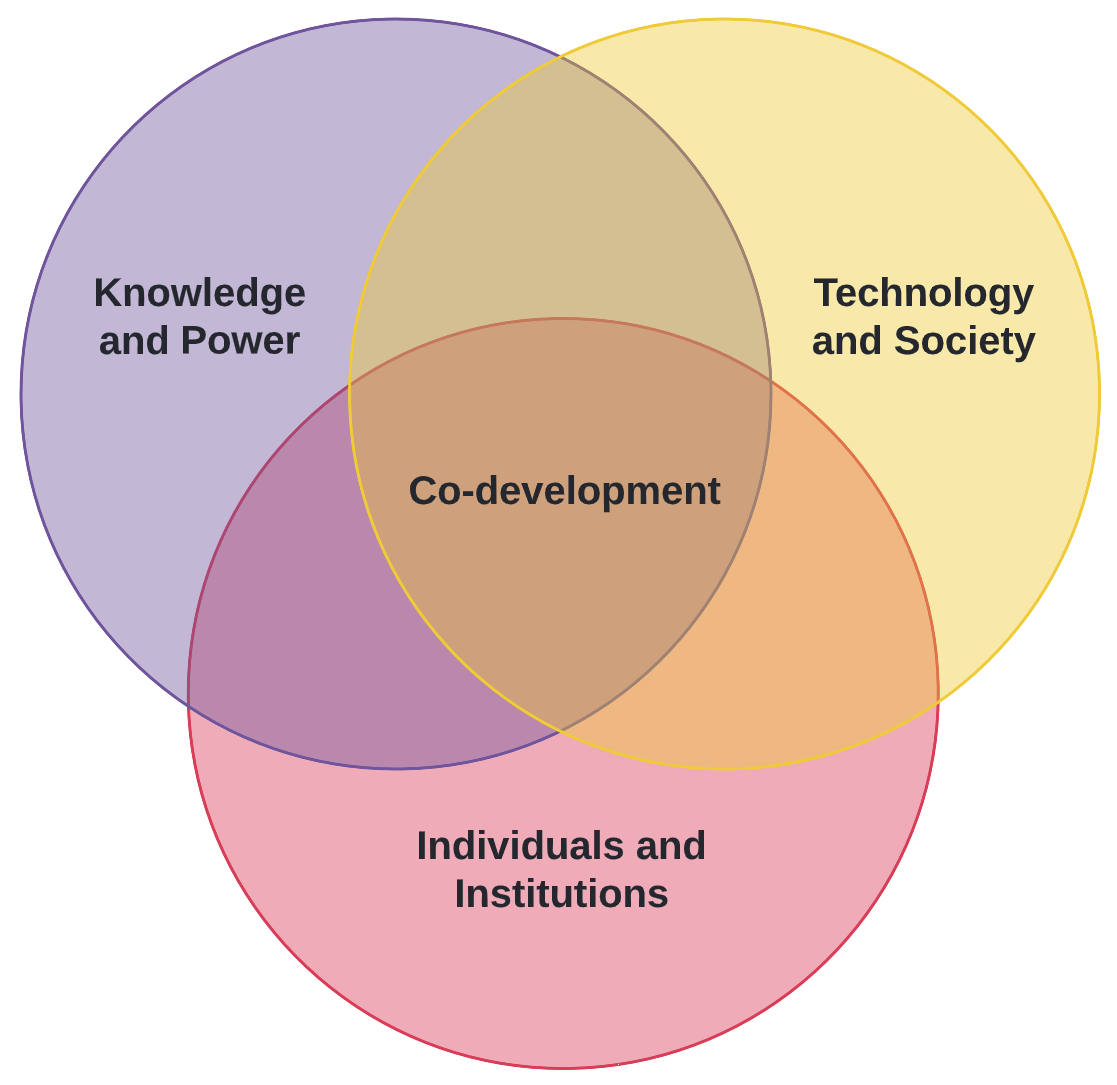.jpg)
Understanding equity in technology
Technology and Society
Technology and society are intrinsically linked. As a result of the interactions between the device and society, the same technological device can have different outcomes in different contexts. Technological devices interact with the social and institutional contexts in which they are used. These contexts include the individuals that use the device and their needs, livelihoods and personal priorities; the local rules, norms and beliefs that impact how a device is used; and the local history of technology use.
Knowledge and Power
Different people have different types of knowledge to contribute to the development of technologies. However, unequal power relationships between stakeholders favour some knowledge holders and prevent others from being heard. For example, scientists' knowledge is often valued over that of non-academic participants. Different types of knowledge are needed to address complex challenges that are situated in social contexts. Power relationships need to be acknowledged and actively balanced to enable different bodies of knowledge to contribute to co-development.
Individuals and Institutions
The outcomes of technological interventions depend on opportunities and constraints that arise from multiple levels (from local to global). For example, community members are connected to wider rules and norms that may operate at the scale of the state (e.g. nationally regulated markets) or the landscape (e.g. norms that distribute natural resource access), while organisations, such as schools or private sector actors may be a significant source of resources for a community. Therefore, the development of equitable technology requires understanding the role of - and engaging with - stakeholders at different levels.
These three considerations give rise to a set of principles to guide technology co-development that can be put into practice by employing a variety of tools.
What to explore next
Contact us
This page was created by Jonathan Ensor (Stockholm Environment Institute, Department of Environment and Geography), Steven Johnson (School of Physics, Engineering and Technology) and Daniel Vorbach (Department of Environment and Geography) based on our experiences with implementing technology co-development projects, interviews with colleagues, and engagement with associated literature. Please contact us with questions, comments or to share information about your co-development projects and methods.


.jpg)
.jpg)
.jpg)
.jpg)